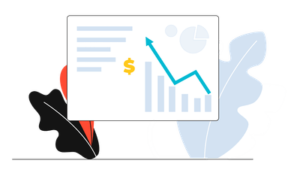Chronic job-related stress occurs when a person feels an imbalance between what he or she is asked to do at work and the resources available to respond. Stressful situations that persist over time always have a cost for the health of the people who suffer them. They also have negative repercussions on the functioning of companies: staff turnover, lost working days, loss of production quality, demotivation at work, among others. The collective prevention approach consists in reducing the sources of stress in the company by acting directly on the organization, working conditions, social relations and so on.
Good stress or bad stress?
According to widespread ideas, good stress allows employees to give the best of themselves, while bad stress makes them sick, the latter could be considered chronic work stress. However, scientifically, there is no such thing as good or bad stress, but rather a phenomenon of adaptation of the organism to the environment, which is necessary. On the other hand, a distinction must be made between “acute stress” and “chronic work stress”, as each has different effects on health.
On the one hand, acute stress corresponds to the reactions of our organism when we are faced with a threat or a specific problem, for example: speaking in public, changing jobs, facing an unexpected situation. However, when the situation is over, the stress symptoms cease shortly after.
Now, is chronic work stress our body’s response to a long-lasting stressful situation? Absolutely; and we can illustrate this statement with the following example: Every day at work we have the impression that what we are asked to do is beyond our capabilities; then, day after day we experience feelings of frustration, anxiety and discouragement. Chronic work stress always has negative effects on the health of the worker or person who suffers from it and, of course, it always leads to demotivation at work.
What are the links between stress and work?
Cases of stress in the workplace are sometimes denied or attributed solely to the fragility or maladjustment of certain employees. However, when faced with manifestations or complaints of stress, it is essential to look for possible links with the professional context.
Work overload, insufficiently defined objectives, difficult or conflictive working relationships, poor relationship with hierarchy or colleagues, and lack of autonomy, among others, may be the cause. If work-related stress factors are identified, will appropriate preventive measures eliminate or at least reduce them? The answer is yes; it is necessary, then, to prevent the emergence of chronic work-related stress because its consequences are quite alarming and counterproductive.
Chronic Job Stress
We have all heard of burnout syndrome and you may even have experienced it yourself. Chronic job stress causes symptoms such as emotional exhaustion, lack of energy and loss of job satisfaction. And all this, in turn, is related to many physiological effects, such as cardiovascular disease and musculoskeletal pain.
Chronic work stress: A stimulus for the organism?
Certainly, stress stimulates our metabolism and our hormonal, immune and cardiovascular systems. If stressful situations are repeated too often or for too long a period of time, our systems cannot return to normal and can modify immune responses and their resistance to inflammation. Ultimately, these changes can lead to other physical consequences, such as chronic disease.
Although, a thorough review of work conditions and work culture is necessary to address the rise of burnout from chronic job stress, there are a number of steps that each of us, as workers or individuals, can take to address it before we suffer from it. And the best way to prevent burnout, as we well know, is to recover and rest.
However, nowadays, there are many tools that the market offers to deal with this kind of problems and one of them is business coaching. A strategy that day after day proves to be very effective, as the ChVmpion Mind platform shows.
ChVmpion Mind promotes high performance within your work teams:
If you are a team leader and you realize that your workers seem disinterested, tired and stressed, then, it is time to take action about it. Nothing better than helping them, through a coaching process where science, technology and agile coaching are combined. All this, to make room for personal development and the achievement of goals and work objectives that you want to achieve with your employees.
Not only will you be able to notice a change after 21 weeks of continuous work, but you will also measure the return on your investment in a quantifiable way. That is, through the economic profitability you achieve thanks to ChVmpion Mind. In this way, making your employees feel good and happy in all aspects of their lives is key to the success of your company or organization.
Burnout is the consequence of chronic job stress over a long period of time….
It is characterized by three components:
- Emotional exhaustion: feeling burned out, exhausted, exhausted, frustrated and tired.
- Cynicism or indifference: Feeling less affection for co-workers or customers.
- Loss of job satisfaction: Inappetence to perform tasks or even show up at the workplace.
Coping with chronic job stress is all about “bouncing back.”
Whether it’s rest after work or focusing on ways to improve productivity or performance. Study after study confirms the importance of daily recovery from work. Recovering means finding time and space for yourself, a sphere disconnected from anything to do with work or stress. Recovery means realigning our physiological responses, such as cortisol (the key stress hormone), to their original levels. Getting a good rest will restore your energy and awaken your enthusiasm to face the next workday. Recovery can take place both on the job (internal recovery) and off the job (external recovery).
The different types of recovery from chronic work stress
Internal recovery consists of relieving chronic work stress by using short intervals during the day to reduce the body’s response to stress. This can be done by pausing for a few moments, practicing breathing exercises, or changing the type of task when the mental or physical load is exhausting. So, if you have a few moments of respite between tasks or meetings, it is better to try to relax than to check your e-mail and expose yourself to new stressors. Meditation and relaxation exercises are quite effective and can even be practiced in the workplace.
Jose, L. Melendez CEO and Co – Founder of ChVmpion Mind; tells us about it:
If someone wants to practice meditation on a daily basis, they should not think about doing it, but sit down to execute it, and then think about what they did, what went well, and what they would need to be able to continue practicing.
After work, you can spend time on external recovery. This, is what you can do outside of work to relieve stress and avoid concerting a chronic level of work stress. Instead of trying to stay on top of work and email, external recovery can include leisure activities. Watching TV, reading or seeing friends, as long as these activities don’t lead you to think about work and therefore stress you out.
The key to recovery from chronic job stress is…
Choose activities based on how good they make you feel. If social media triggers negative emotions, don’t look at it on your breaks or after work. If hanging out with certain people makes you feel tired, it certainly won’t help you recover. Recovering from everyday life is just as important. Research shows that the energy gained from end-of-day activities helps you cope with the stress of the next day. People who disconnect from work after leaving work are 70% more productive than those who fail to do so. Therefore, it is important to remember that it is not the duration of breaks or recovery activities that counts, but their quality.










